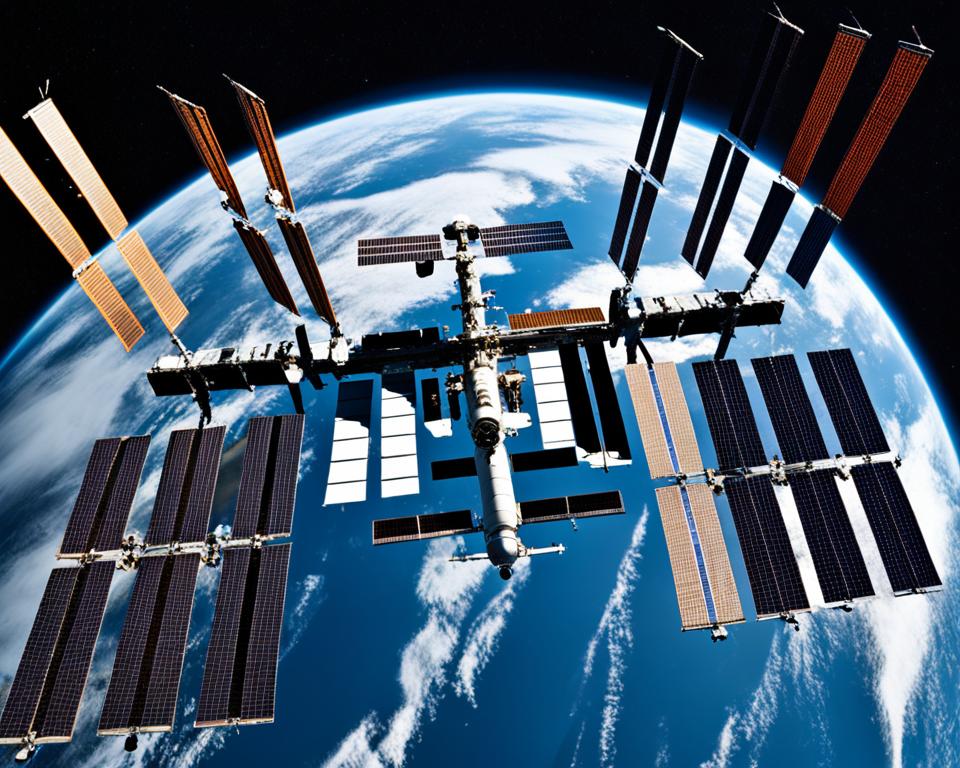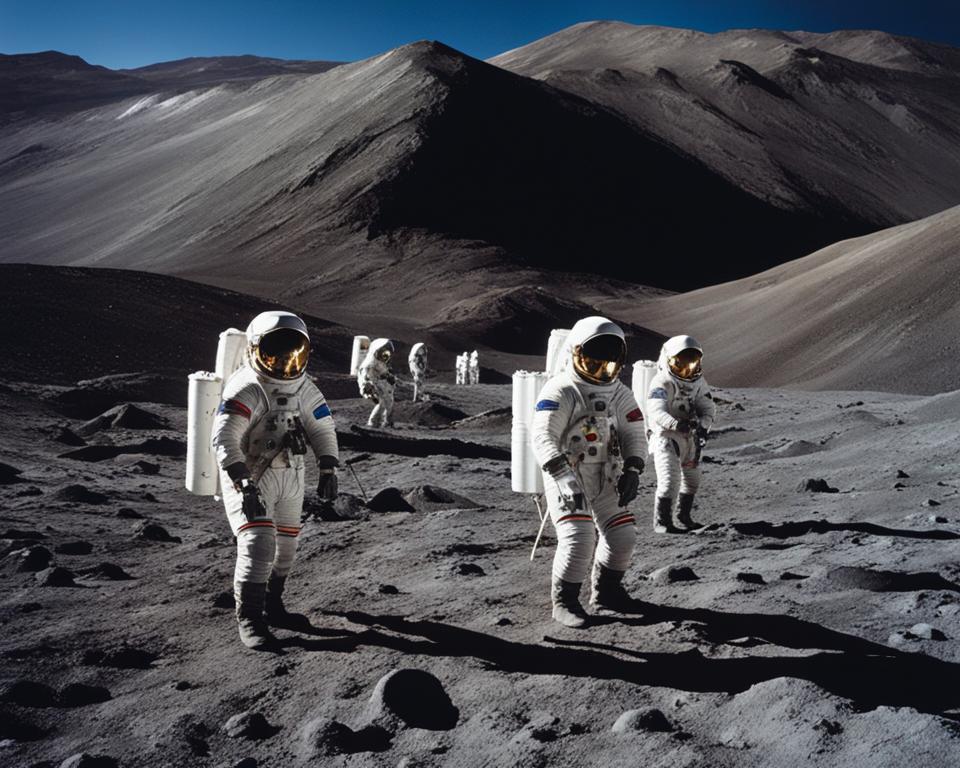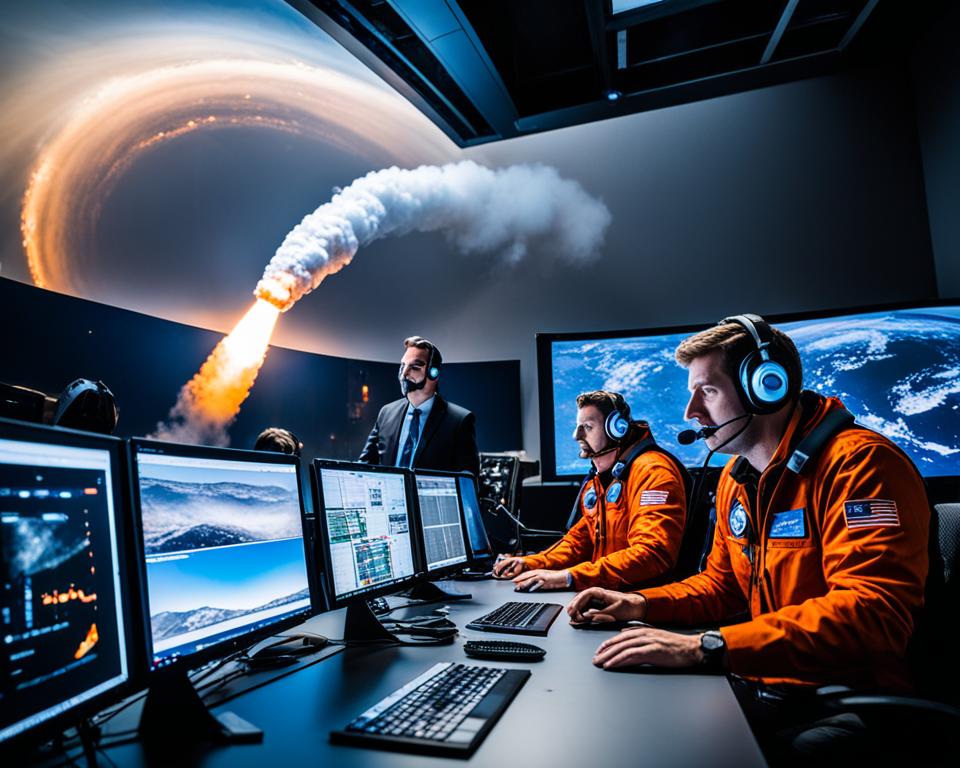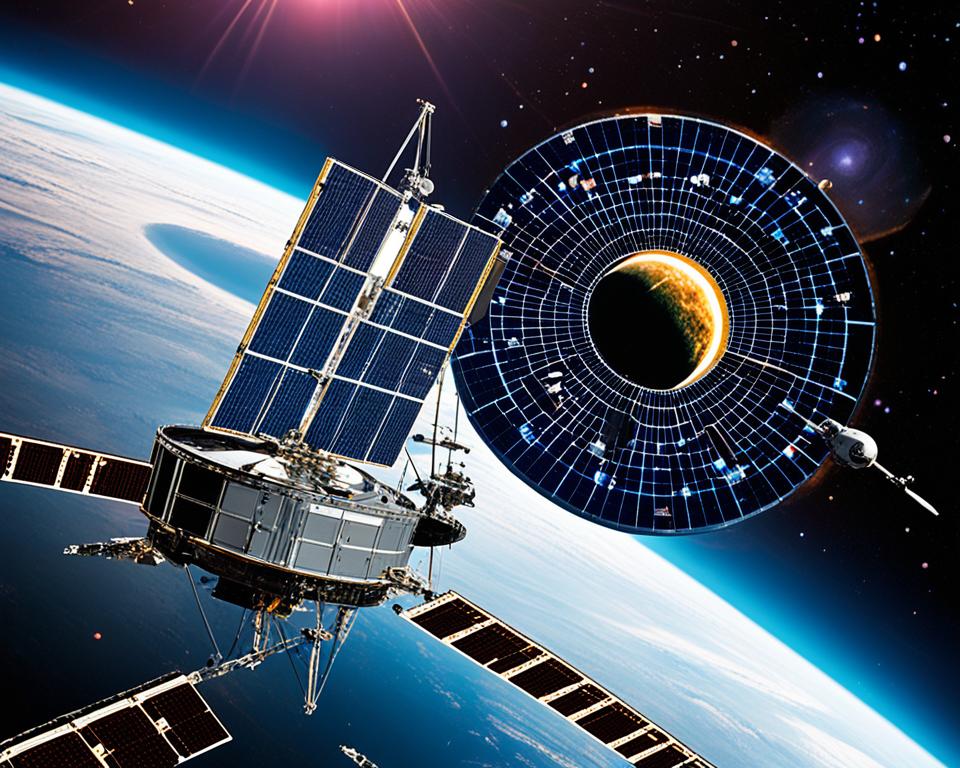Adverts
To the international space agencies they are government organizations dedicated to space exploration and expanding horizons beyond Earth. These agencies develop orbital flight projects and capabilities, have confirmed orbital launch capabilities, and are involved in outer space-related activities. Some of the main international space agencies include the United Nations (UN), the European Space Agency (ESA) and NASA in the United States.
Adverts
Main points
- To the international space agencies they are government organizations dedicated to space exploration.
- They develop orbital flight projects and capabilities, as well as being involved in activities related to outer space.
- Some of the major international space agencies are UN, The ESA and NASA.
United Nations
A United Nations (UN) plays a fundamental role in the field of space technology through your Office for Outer Space Affairs (OOSA). OOSA is responsible for dealing with matters relating to outer space and implementing policies established by the General Assembly of the UN. In addition, OOSA supports developing nations to promote the use of space technology aiming at economic development.
The OOSA office is located in the city of Vienna, Austria, in the UN compound. The UN is an international organization that seeks to promote peace, cooperation and sustainable development among countries. With regard to outer space, the UN recognizes the importance of space exploration for the advancement of human knowledge and supports initiatives that promote international collaboration in this field.
Adverts
"A space exploration It is a unique opportunity for humanity to expand its horizons and seek answers to fundamental questions about our origins and the future of our planet.” – UN Secretary-General
OOSA's performance
O Office for Outer Space Affairs (OOSA) has several areas of activity in the field of space technology. Some of its main activities include:
- Promote international cooperation in the development of space technologies;
- Facilitate access to spatial data and information through the Space 2030 initiative;
- Carry out training and qualification programs for professionals in the space sector;
- Support the development of national space legislation;
- Coordinate the International Safe and Sustainable Orbits Program (I-SCOPE), which seeks to ensure the sustainability of space activities;
- Promote the use of space technology for economic and social development, especially in countries in development.
OOSA's work reflects the UN's commitment to promoting international cooperation and the use of space technology in a sustainable manner, aiming for the benefit of all nations.
Collaboration between the UN and Space Agencies
The UN works closely with several space agencies around the world, including the European Space Agency (ESA), NASA of the United States, Roscosmos of Russia and several others. This collaboration involves sharing knowledge, resources and technologies to advance space exploration and the development of space applications beneficial to humanity.
In addition, the UN also promotes cooperation between countries through international space treaties, such as the Outer Space Treaty, which establishes legal principles for the peaceful uses of space.
Through this collaboration, the UN and space agencies are contributing to the advancement of science, the development of innovative technologies and the improvement of the quality of life on planet Earth.
See too:
Major Space Missions Supported by OOSA
| Space Mission | Description | Space Agency |
|---|---|---|
| Apollo Program | Manned missions to the Moon. | NASA |
| Mars Orbiter Mission | Mission to study Mars and its moons. | ISRO |
| ExoMars | Mission to search for evidence of life on Mars. | ESA, Roscosmos |
| Chang'e | Missions to explore the Moon. | CNSA |
| COMPASS | Mission to study charged particles in space. | ASI |
European Space Agency
A European Space Agency (ESA) is an intergovernmental organization founded in 1975. Headquartered in Paris, France, ESA is dedicated to space exploration and the development of advanced space technologies.
ESA currently has 22 member states, including countries such as Germany, France, Italy, the United Kingdom and Spain. This international collaboration enables ambitious projects to be carried out and knowledge to be shared between European countries.
ESA has approximately 1,900 employees, including scientists, engineers and astronauts. The agency has a budget of €3 billion, which is used to fund a wide range of activities, from space missions to scientific research.
One of ESA's main goals is to promote space exploration and improve our understanding of the universe. The agency conducts orbital launch missions and develops satellites to observe Earth, study the atmosphere, investigate the physics of space, and more.
“ESA is committed to expanding humanity’s horizons beyond Earth and contributing to the advancement of space science and technology.” – ESA Director General
Furthermore, ESA plays a key role in international cooperation in the field of space exploration. The agency collaborates with other space agencies, such as NASA, and participates in joint projects, such as International Space Station (ISS).
ESA Projects
ESA is involved in a number of exciting projects that seek to expand our knowledge of the Universe and advance space exploration. Some of these projects include:
- Space probe missions to investigate planets, moons and comets in the Solar System
- Development of space telescopes to observe distant objects in the cosmos
- Advanced research in astronomy and astrophysics
- Development of innovative technologies for space travel
ESA aims to inspire a new generation of scientists, engineers and astronauts by promoting science education and outreach programmes across the European continent.
Participation in Space Exploration
The European Space Agency is recognised worldwide for its active involvement in space exploration. Through its missions and international partnerships, ESA is contributing to expanding our knowledge of the Universe and paving the way for future human exploration.
The European Space Agency plays a key role in the development of advanced space technologies, enabling humanity to take significant steps towards a deeper understanding of the cosmos.
National Space Agencies
Several countries have their own national space agencies, each with different operational capabilities. These agencies are responsible for operating satellites, launching probes, operating space stations and even launching satellites. Learn about some of the national space agencies most prominent in the world:
NASA (United States)
The National Aeronautics and Space Administration (NASA) is the space agency of the United States. It is known for its pioneering space exploration, including the Apollo mission that put man on the moon. NASA is responsible for launching and operating satellites, conducting microgravity research, and developing innovative technologies for space exploration.
CNSA (China)
The China National Space Administration (CNSA) is China's space agency. In recent years, the CNSA has gained international recognition for its achievements in space exploration, including the successful landing of a probe on the far side of the Moon. The agency aims to strengthen its space capabilities and undertake ambitious missions such as sending astronauts to the Moon and Mars.
ISRO (India)
The Indian Space Research Organisation (ISRO) is India's space agency. It focuses on promoting space research and developing affordable technologies for the benefit of the country. ISRO has already completed several successful missions, including launching probes to the Moon and Mars, and is working to send its first astronaut into space.
AEB (Brazil)
The Brazilian Space Agency (AEB) is the space agency of Brazil. Its main mission is to develop and promote space research in the country. AEB has collaborated with other international space agencies and plays a key role in the development of satellites and space technologies that benefit Brazil, especially in the areas of environmental monitoring, communications and meteorology.
These national space agencies are examples of countries' efforts to expand their borders beyond Earth and explore the mysteries of outer space.
“Space exploration is a never-ending journey of discovery, driven by humanity’s innate curiosity.”
International Space Station
A International Space Station (ISS) is an orbital structure that serves as a laboratory for observing the Earth and conducting experiments in a low-gravity environment. Assembled by 15 countries over several years, the ISS It has impressive dimensions, measuring 109 meters wide, 73 meters long and 20 meters high.
The ISS plays a crucial role in space exploration and the advancement of scientific knowledge. It offers the opportunity to conduct experiments that would not be possible on Earth, thanks to the absence of gravity. In addition, the station serves as a base for continuous observation of the Earth, contributing to the study of climate, geology and other natural phenomena.
Monitored by NASA and the space agencies of Russia, Japan, the European Union and Canada, the ISS is a perfect example of international cooperation in favor of space exploration. This partnership allows for the sharing of knowledge, resources and responsibilities, strengthening ties between nations and driving scientific and technological advances.

Benefits of the International Space Station
| Benefits | Description |
|---|---|
| Scientific advancement | The ISS makes it possible to carry out unique experiments in low gravity environments, providing new discoveries and advances in various fields of knowledge. |
| Space technologies | Over the years, the ISS has been a platform for testing and developing technologies fundamental to space exploration, such as propulsion and life support systems. |
| International cooperation | The construction and operation of the ISS involves the cooperation of several countries, strengthening diplomatic relations and promoting teamwork for the benefit of science and humanity. |
| Applied spatial research | In addition to contributing to the advancement of knowledge, the ISS also allows research and experiments to be carried out that can have practical applications in areas such as medicine, agriculture and materials development. |
See the International Space Station
It is possible to see the International Space Station with the naked eye from anywhere in Brazil. Through the “Spot the Station” platform, it is possible to obtain information about the date, time, duration and location of the next opportunity of ISS sighting in your region. In addition, you can watch in real time the incredible images of Earth taken by the cameras attached to the ISS.
Spot the Station is a service offered by NASA that allows you to follow the trajectory of the International Space Station and find out when it will be visible in the sky. To participate, simply access the website Spot the Station, insert your location and receive all the information necessary to sight the ISS.
Through this platform, you will be able to know exactly when the International Space Station will be passing over your region, providing a unique opportunity to see it in the sky. Don't miss the chance to witness this incredible spectacle!
Conclusion
International space agencies play a vital role in the exploration of space and the advancement of human knowledge. They enable space missions, scientific data collection, and the development of space technologies that can improve our lives here on Earth.
Through cooperation and collaboration between different countries, international space agencies are expanding humanity’s horizons beyond Earth. These partnerships allow for the sharing of resources, knowledge and experience, further advancing space exploration and the advancement of space science.
By joining forces, international space agencies are promoting significant discoveries, such as the exploration of planets, the investigation of space phenomena and the search for extraterrestrial life. They are also contributing to improving global communications, monitoring the climate and understanding the effects of space on human health.
FAQ
What are the international space agencies?
Some of the major international space agencies include the United Nations (UN), the European Space Agency (ESA), and NASA in the United States.
What does the Office for Outer Space Affairs (OOSA) do?
OOSA is the UN body responsible for matters relating to outer space. It implements the policies of the UN General Assembly and provides support to developing nations in the use of space technology for economic development.
When was the European Space Agency (ESA) established?
ESA was established in 1975.
How many member states are part of the European Space Agency (ESA)?
ESA has 22 member states.
What is the International Space Station (ISS)?
The ISS is an orbital structure that serves as a laboratory for observing Earth and carrying out experiments in a low gravity environment.
How can I see the International Space Station with the naked eye?
Through the “Spot the Station” platform, it is possible to obtain information about the date, time, duration and position of the next opportunity ISS sighting in your region. In addition, it is possible to watch real-time images of the Earth taken by cameras attached to the ISS.
What is the role of international space agencies?
International space agencies play a vital role in the exploration of space and the advancement of human knowledge. They enable space missions, the collection of scientific data, and the development of space technologies that can improve our lives here on Earth.




